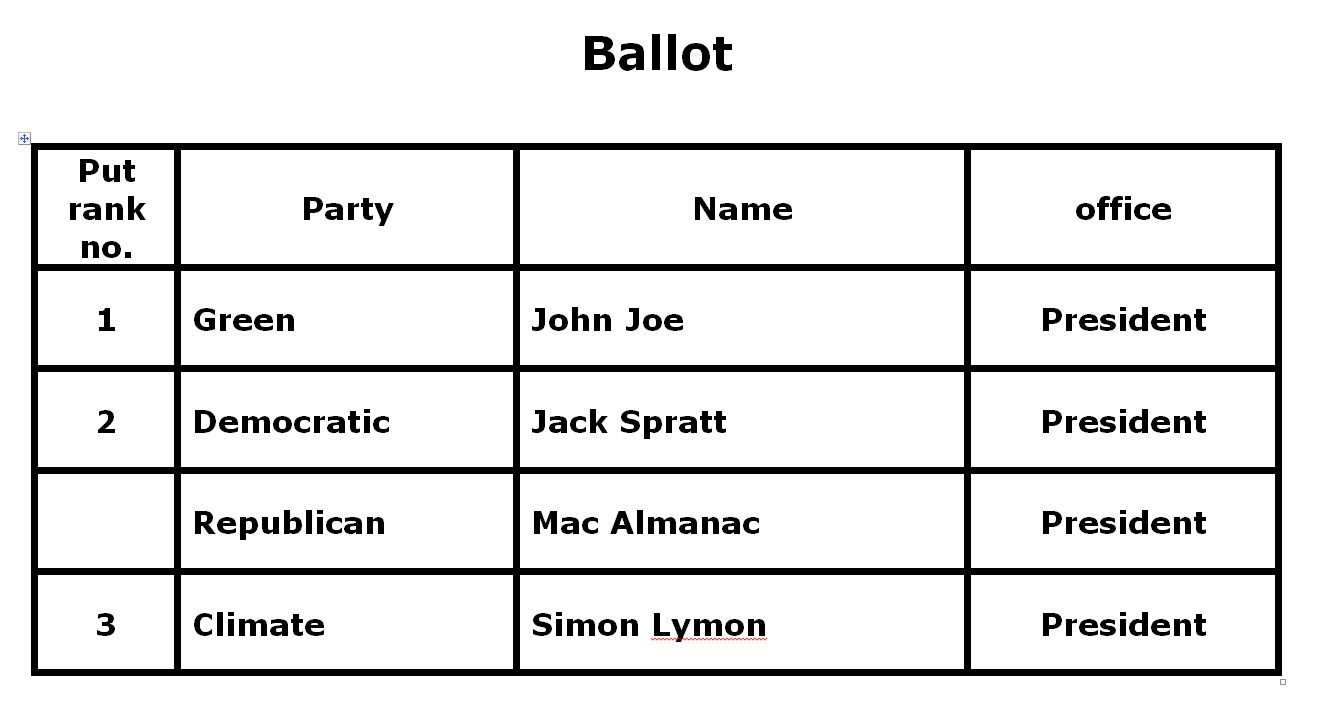In 2008 mariner and his wife attended the Iowa democratic caucus (primary) to vote for Martin O’Malley. We were not allowed to cast our votes. We were the only two present who wanted to vote for this candidate. We had to switch to two more popular candidates to assure a majority for the winning candidate. Of course we did not.
As the reader may know, mariner is skeptical that the concept of ‘one person, one vote’ exists. As 63 percent of the American public attests today, there is little confidence in the two-party system.
The most common complaints:
- Both parties are owned by big money, billionaires, the oil industry, etc.
- Both parties have destroyed valid party representation through severe gerrymandering.
- Both parties control party affiliation through big budget domination; third parties and local favorites don’t have a chance.
- Voters feel they must vote against what they fear rather than what they would prefer – even if a preferred third party is on the ballot.
- While more Americans voted in 2020 than in any other presidential election in 120 years, 33 percent, 1 in 3 voters, did not.
Every once in a while mariner rummages through obscure magazines and online sources looking for alternatives to the two party system. Lately, a new phenomenon has popped up: 50 jurisdictions in the United States have switched to ranked voting. Ranked voting means the voter can rank several candidates according to preference. A voter can cast a vote for a preferred party first then rank a second vote for another party and can rank every candidate on the ballot. This distributes the final count to the candidate with the most votes by rank rather than a simple majority. Even if a candidate comes in second or third, they may have enough votes to be influential in government politics..

This simple modification greatly reduces the advantages of gerrymandering. Further, third parties have a chance to gather votes as a first choice because the voter feels that the voter’s second, more dominant party still gets a vote.
Today’s citizenry is aware that elected candidates are part of a national plutocracy. Or, they could vote for the far right crazies if they are of that ilk. Otherwise, not even an independent billionaire (Tom Steyer) can campaign successfully against the Koch Brothers and Elon Musk.
Reflecting back on Congressman Ro Khanna’s book about dignity in government, ranked voting isn’t exactly his perspective but mariner believes that allowing multiple parties to inject special voter interests is a way to increase participation beyond Washington D.C.
None of the fifty districts includes multiple subordinate districts but if enough state legislators promote ranked voting, it may become popular enough to generate some legitimacy to what frequently is called ‘one person, one vote’.
Ancient Mariner
